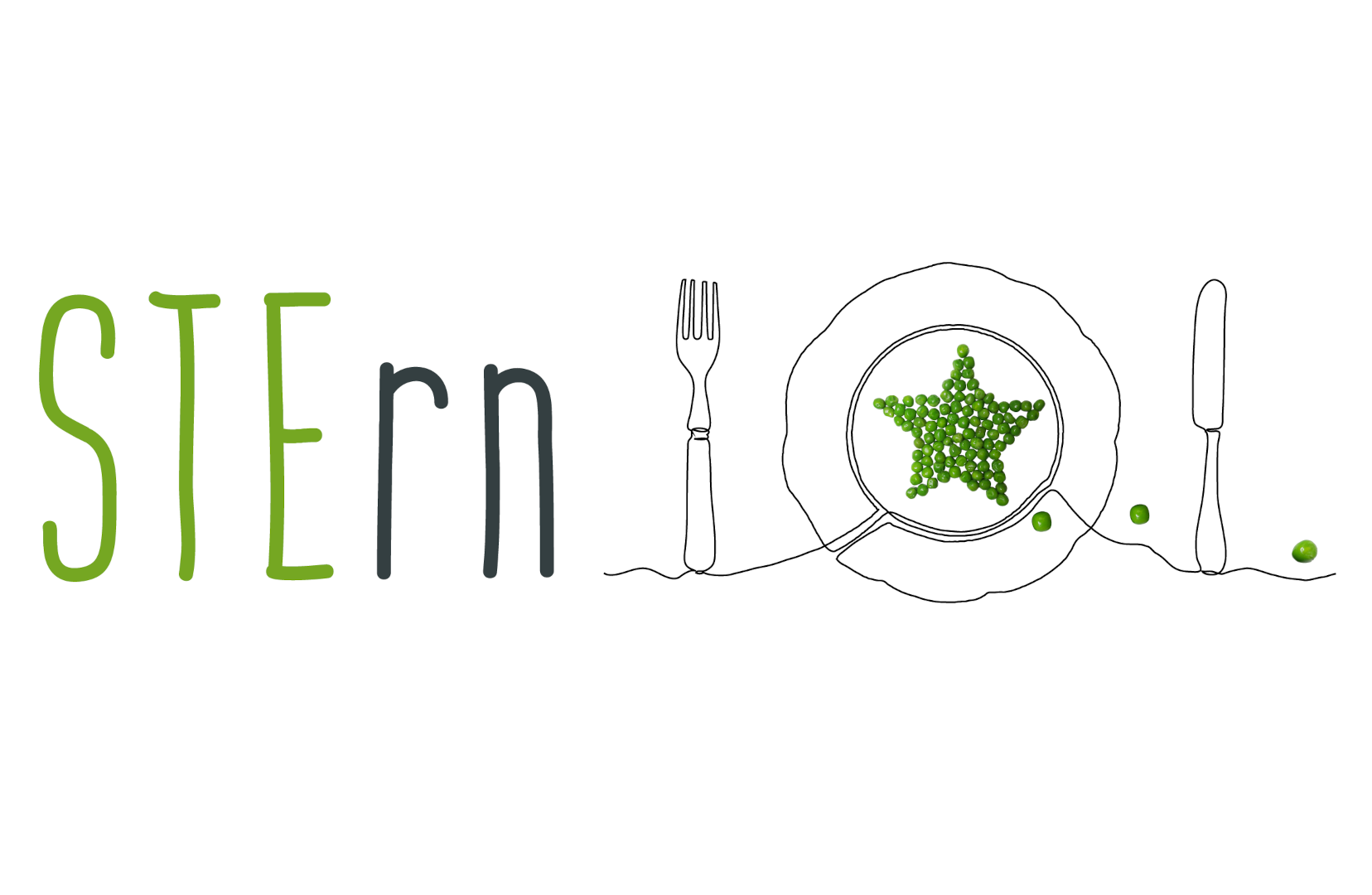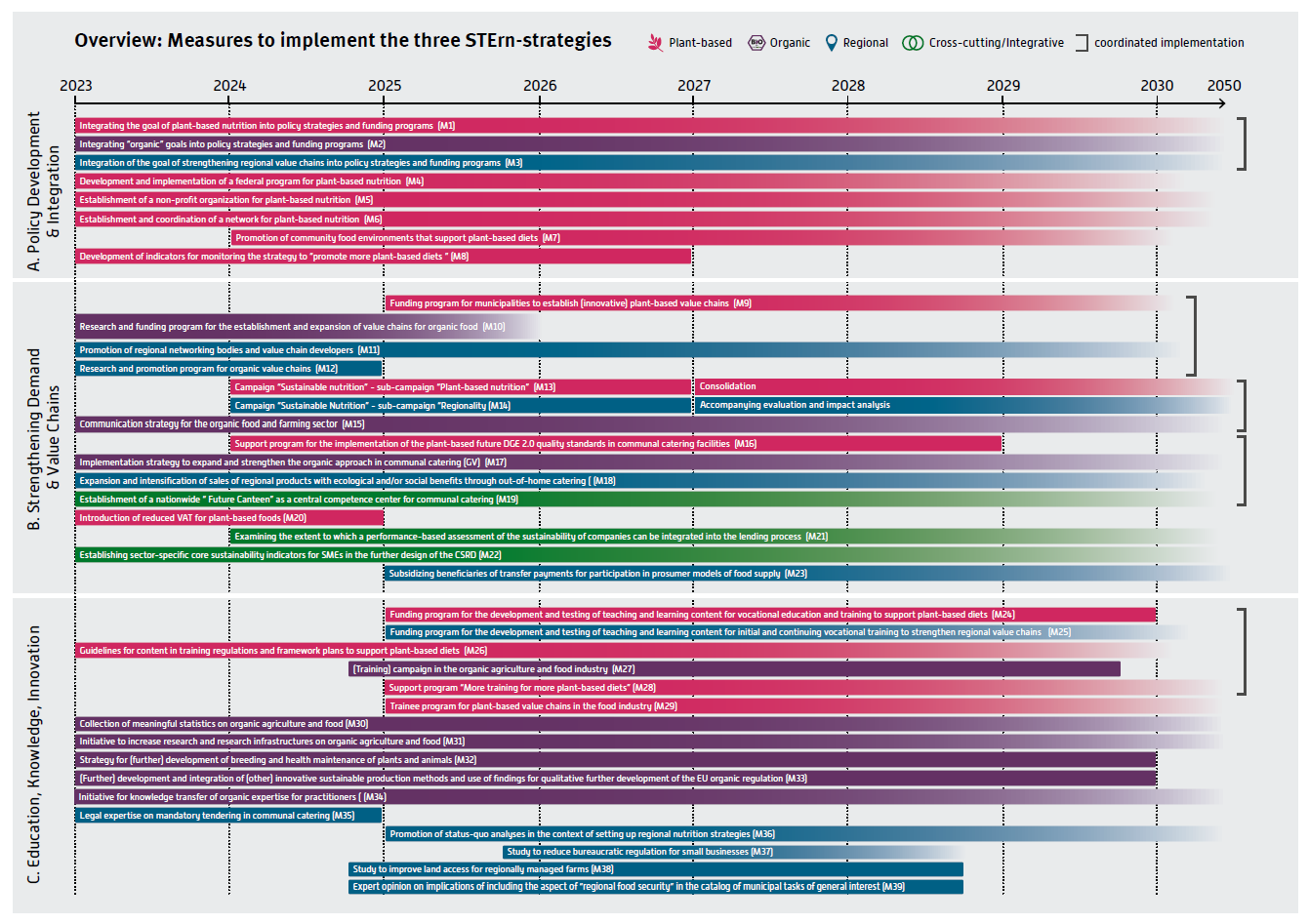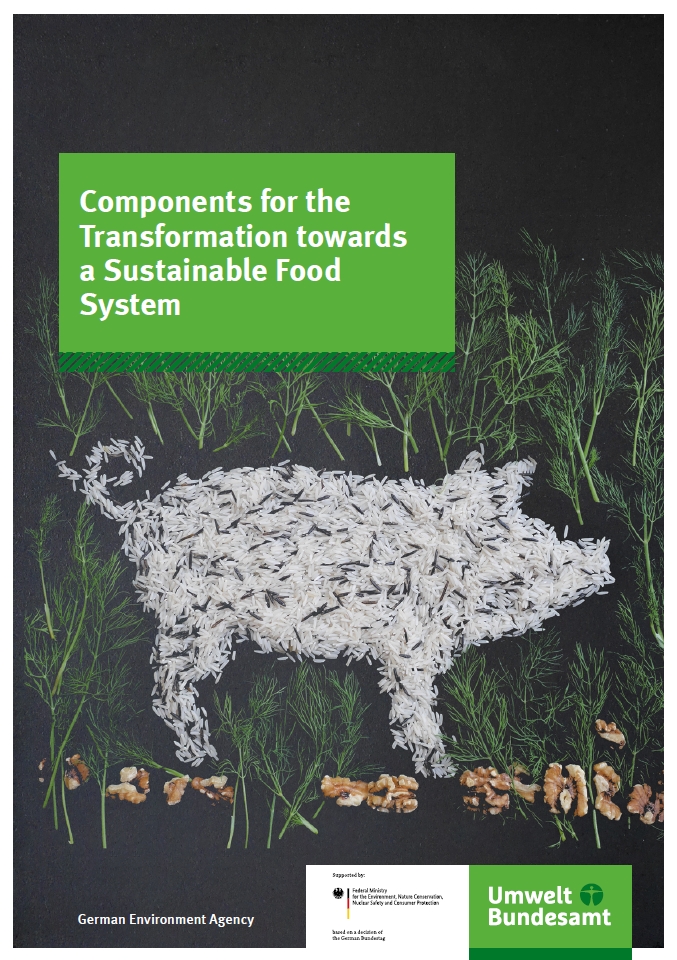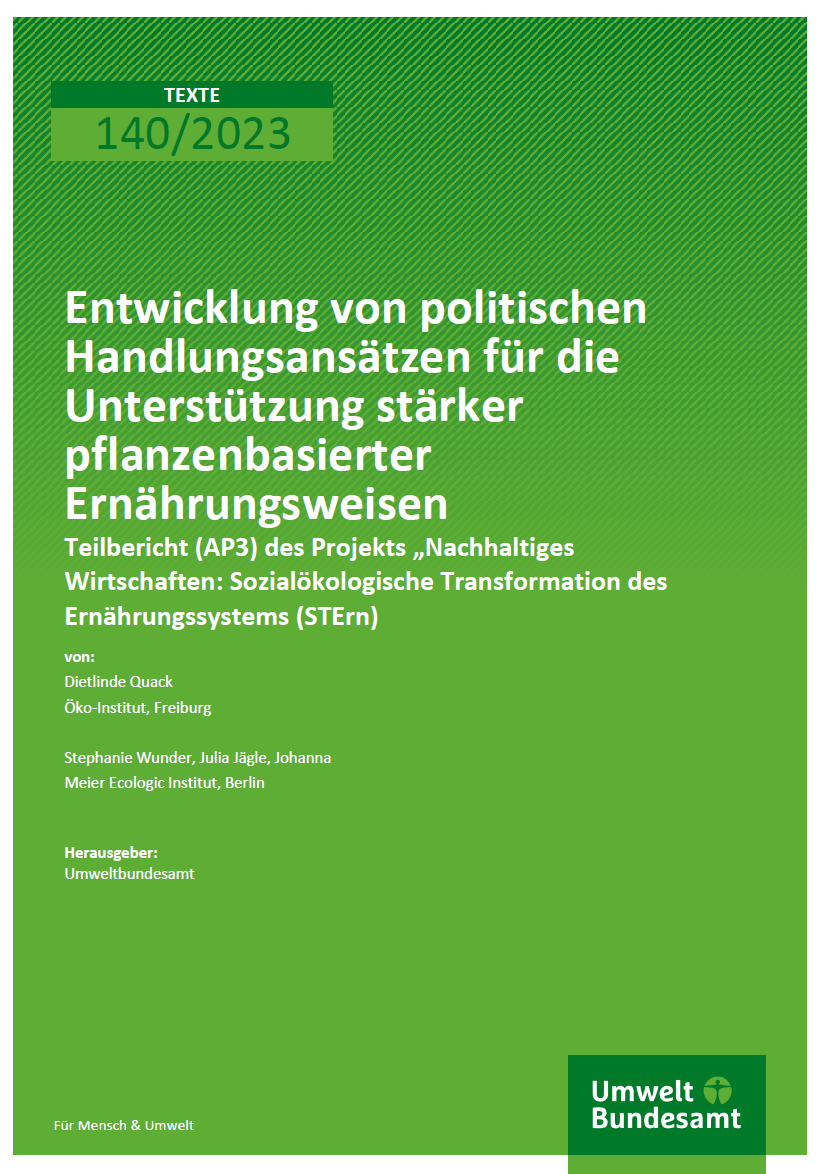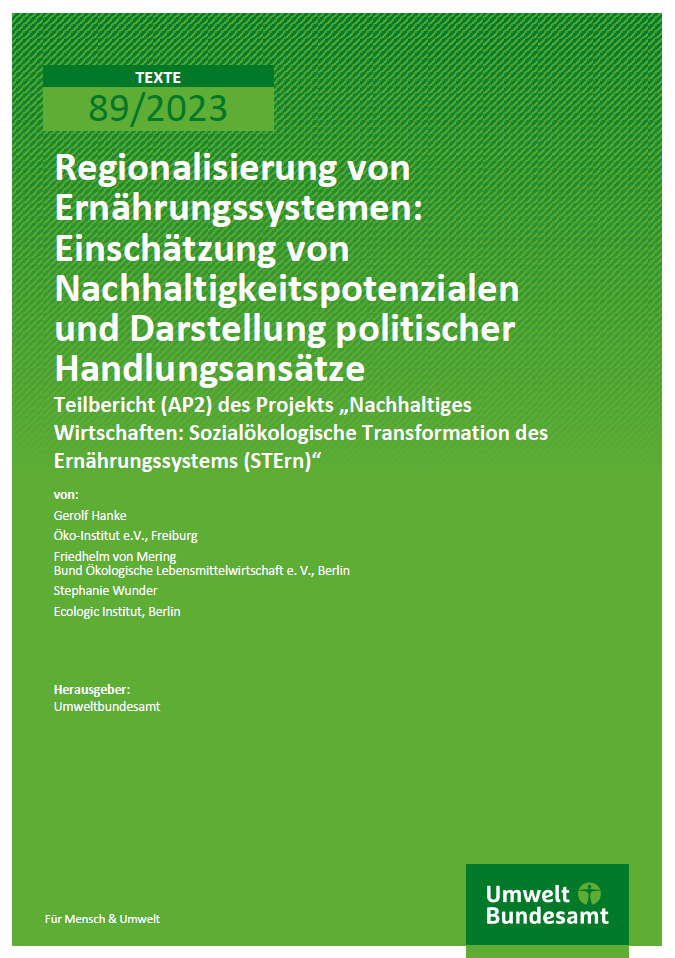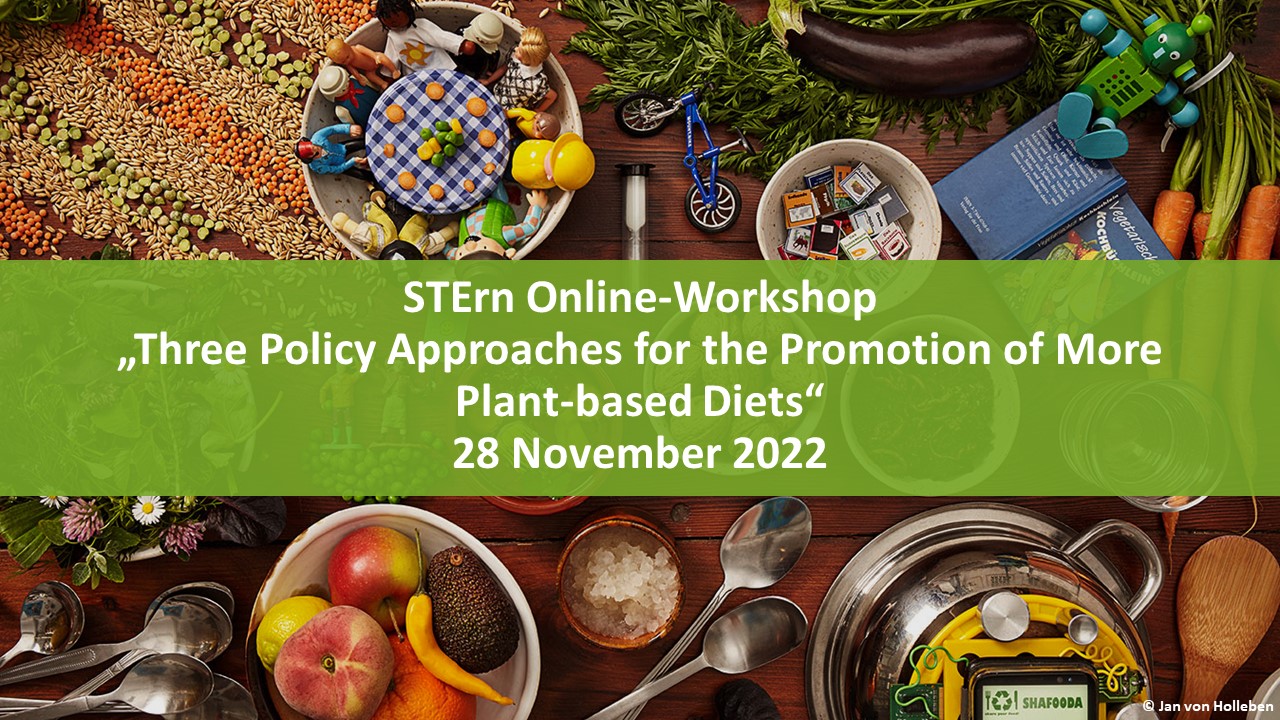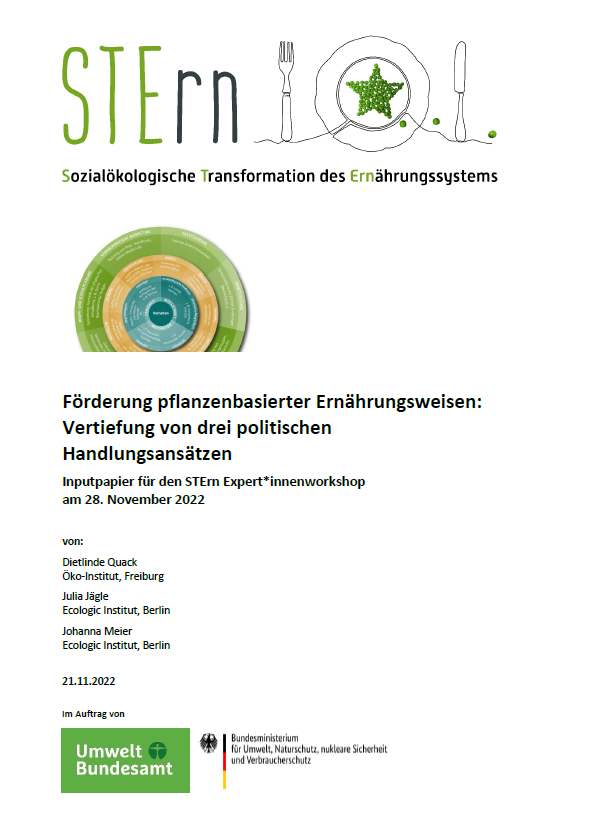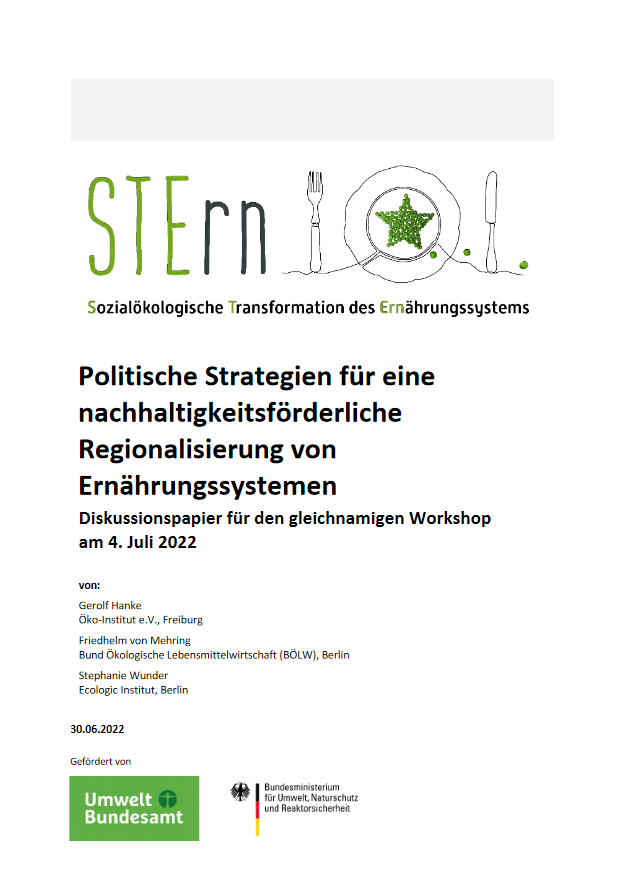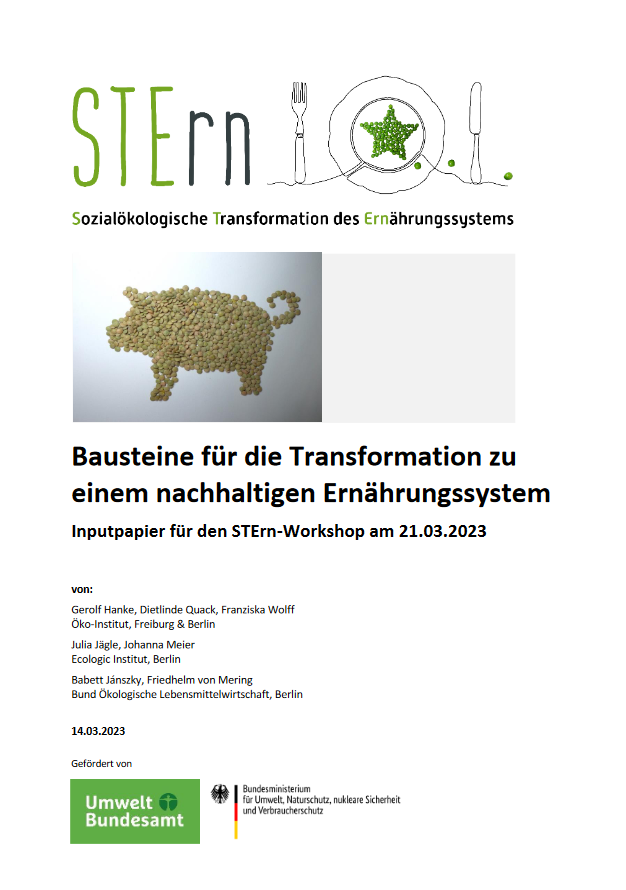Sustainable Management: Socio-Ecological Transformation of the Food System
- Project
- Duration
-
-
Between October 2020 and September 2023, policy recommendations for the transformation towards a sustainable food system were developed within the project "Socio-Ecological Transformation of the Food System" (STErn). The recommendations include short-, medium- and long-term courses of political action. The acronym STErn (meaning "STAR") is based on the German name of the project "Sozial-ökologische Transformation des Ernährungssystems".
Goals
The focus was on three topics:
- Dietary behaviour: Suitable aggregated indicators and target values for measuring progress were determined, effective political interventions were identified, and selected approaches were explored in depth. Based on this, political entry points to promote a more plant-centric diet in Germany were developed.
- Organic food and farming sector: Scenarios and development concepts for the organic food and farming sector were elaborated, which not only target agricultural production but encompass the entire value chain. Based on this, recommendations for action were derived for policy-makers, scientists, and practitioners.
- Regionalization: The relevance of environmental policy regarding the regionalization of food was examined and the potential effects of a stronger regionalization of food production in Germany were analyzed. Based on this, political entry points to promote the regionalization of the food system in Germany were developed.
As a cross-cutting issue, the role of the financial sector in the transformation of the food system was analysed. Based on this, proposals for determining sustainable investments in the food sector as well as suggestions for improved financing of sustainable regional production and processing concepts were developed.
Background
Food systems around the world have changed dramatically in recent decades. During the so-called "Green Revolution" of the 1960s, new technologies and practices proliferated - such as the use of high-yielding varieties, artificial irrigation, mineral fertilizers, and pesticides. As a result, global food production increased sharply.
However, the high intensification also comes with serious social and environmental consequences. In addition, there are increasing pressures on natural resources and ecosystems from a growing world population, rising demand for agricultural products outside the food sector, changing dietary patterns towards more resource-intensive animal foods and highly processed products, and changing consumption patterns towards more resource-intensive animal foods and highly processed products. In this context, nutrition-related diseases are also increasing at an alarming rate.
In recent years, political impulses have been sent out: The need for a socio-ecological transformation of the food system is expressed, for example, in the European "Farm to Fork Strategy" of 2020. The task now is to create political framework conditions that do justice to the complexity of the socio-ecological challenges. So far, this has not been done to a sufficient extent: Food policy issues (agriculture, environment, health, food security, economic development, etc.) are fragmented into different departments and do not follow a coherent strategy. For instance, agricultural policy support does not follow an overarching approach that considers everything from agricultural production through trade and consumption to disposal/recycling. In addition, important sub-areas of the transformation of food systems - such as the promotion of plant-based diets - are not yet consistently on the political agenda.
Moving forward, it is essential to consistently align sustainability policies. This requires coherent recommendations for policymakers, including appropriate tools, transparent indicators, and improved participation processes. Currently, science-based insights are lacking in some key areas. This is where the STErn project comes into play.
The role of Ecologic Institute in the STErn project
Ecologic Institute and the Oeko-Institut were responsible for the overall management of the project, which was carried out together with the Bund Ökologische Lebensmittelwirtschaft and e-fect. In addition, Ecologic Institute was in charge of some central work areas, particularly the development of the strategy and political approaches in the area of the dietary shift towards plant-based diets.
